Movement and Location: A Brief Comment on Meaning in the Literary Experience
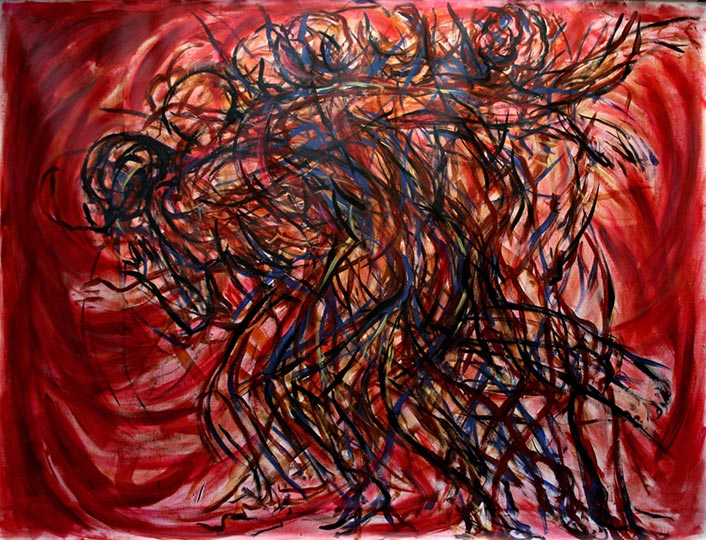
The original intention in putting together this commentary was to canvas the relationship between travel and what might be thought of holistically as the literary experience—that amorphous, hard-to-pin-down world which writers and readers share between them. At the outset of such a project, one hopes to delve, artfully if possible, below the surface of the topic, to pull at the threads of its deeper metaphorical potentials. As early notes begin to come together (or fail to do so), one finds things to be a little less straightforward. The usual philosophical question arises: What does this thing actually mean anyway? Here are a few abbreviated entries under travel from the Oxford English Dictionary (2023):
- The action of travelling or making a journey, esp. to distant places or through foreign lands.
- More generally: the action of moving or passing along a course or path, or over a distance.
- The motion of a device or some part of a mechanism, such as a piston, that is constrained to move along a fixed course during operation, such as in a circuit or to and fro; (also) the distance through which such a part moves.

Arguably, the underlying theme here is movement, and its inevitable counterpart location. Indeed, travel as a concept does not really work without either movement or location. Both words, incidentally, comprise the title of a song by the Punch Brothers, the lyric of which captures something of the dramatic, or perhaps poetic, potential of travel (see below). Taken from its original musical setting, spending a considered moment with the text offers an opportunity for a moment of readerly poiesis; a useful term which describes the bringing into being of new things, historically by human creators. While the word provides a helpful term with which to identify the ‘making’ aspect of creative practices (such as, but not limited to, writing), it can also be understood in relation to other parts of the literary experience. One may, therefore, consider the act of reading also to be one of poiesis—that is, one in which the reader constructs new meanings through the practice of immersion in a given text.
Did he ever live
In those three and twenty years
For a thing but movement and locationIf she’d raised her voice
Not her sparkling shallow eyes
To indict my movement and location
Would the battle be lost?You can watch the tape
Lyric to Movement and Location (Punch Brothers, 2012)
You can try to hit your spots
But don’t do it for anything but the love of movement and location
Or the battle is lost
Understanding contemplative acts such as reading, listening, and viewing as sites of poiesis helps to explain the meaningful, poetic potential in placing seemingly unrelated artefacts in the orbit of one another. Consider again, for instance, the lyric above. Did you sit and ponder? Did you breeze past it? Its point here is not to serve as an object of traditional analysis, but as one of poetic, readerly potential; one which offers perhaps a more dramatic or romantic insight into the subject of travel which may not be wholly attained through the reading of expository prose.

While travel has certainly been imbued with a degree of poetic charge in both the literary world and more broadly general life (the OED assigns it quite literally a proverbial status), there are those who have challenged the need to venture afield in search of a meaningful story. One excellent passage to this effect is the following, from the British essayist G. K. Chesterton. Though the quote that follows is lengthy, it offers a richly textured elaboration as to the value of poetic introspection.
The other great literary theory, that which is roughly represented in England by Mr. Rudyard Kipling, is that we moderns are to regain the primal zest by sprawling all over the world growing used to travel and geographical variety, being at home everywhere, that is being at home nowhere. Let it be granted that a man in a frock coat is a heartrending sight; and the two alternative methods still remain. Mr. Kipling’s school advises us to go to Central Africa in order to find a man without a frock coat. The school to which I belong suggests that we should stare steadily at the man until we see the man inside the frock coat. If we stare at him long enough he may even be moved to take off his coat to us; and that is a far greater compliment than his taking off his hat. In other words, we may, by fixing our attention almost fiercely on the facts actually before us, force them to turn into adventures; force them to give up their meaning and fulfil their mysterious purpose. The purpose of the Kipling literature is to show how many extraordinary things a man may see if he is active and strides from continent to continent like the giant in my tale. But the object of my school is to show how many extraordinary things even a lazy and ordinary man may see if he can spur himself to the single activity of seeing.
G. K. Chesterton, excerpted from Tremendous Trifles, re-published in 2015
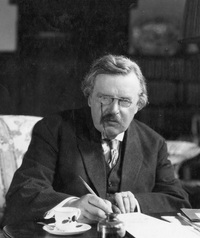
Others are in agreement with Chesterton’s ideal of deeper seeing. Consider Natalie Goldberg’s commentary on the topic in Writing Down the Bones (2016). As Goldberg tells us, “original details are very ordinary, except to the mind that sees their extraordinariness”. The literary experience is of course in the mind of the writer and the reader, and whether one comes to the party with a sense of the fantastic (or a sense of poverty, both Goldberg’s terms) is to some extent a choice.
Of course, neither Chesterton nor Goldberg appear to be in disagreement with the idea that travel offers useful creative opportunities. Indeed, in some branches of the literary enterprise, travel is baked in by definition—consider journalism, and the correspondent writing from some place in which activities of interest are unfolding. The common thread here, perhaps, is the pursuit what Chesterton calls primal zest, however it is to be found. The point of the literary experience is that it broadens the tapestries of meaning that inform our moments, our lives, and our culture. This is, of course, rather difficult to achieve with the banal; without a sufficient supply of Chesterton’s primal zest. While commentators such as Chesterton and Goldberg suggest that the apparently banal features of our worlds are indeed likely to contain rich interior complexity, access to this complexity—to a rich poiesis—likely requires tenacious contemplation; a practice challenged no doubt by the rapid-scrolling pace of life in today’s world. As noted at the outset, the literary experience is a shared one, and it follows that the responsibility for the quality and depth of that experience rests with the reader as well as the writer.
Works cited
Chesterton, G. K. (2015). Tremendous trifles: Essays. Open Road Media.
Goldberg, N. (2016). Writing down the bones: Freeing the writer within [Audiobook]. Sounds True.
Oxford English Dictionary. (2023). Travel. Retrieved from https://www.oed.com/
Punch Brothers. 2012. Movement and location [Song recorded by the Punch Brothers]. On Who’s Feeling Young Now? Nonesuch/Warner.
What do you think? Leave a comment.
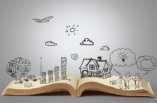


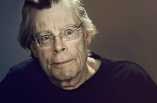
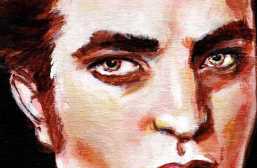
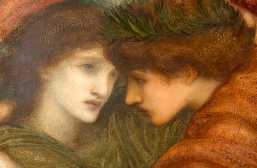
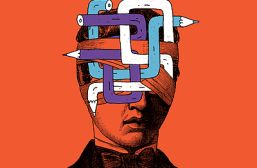
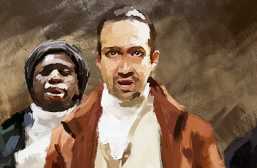
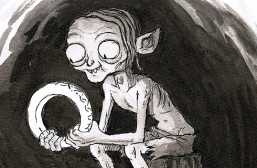
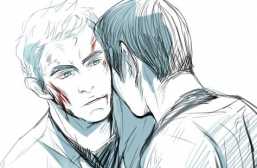

Great article, your passion really shines through.
Thanks Sunni!
Fantastic article. It got me interesting in literary theory and writing as a whole. Do people here have any recommendations on where to start learning more about it?
S/Z by Roland Barthes. Period.
Exclamation point.
The Norton Anthology of Theory and Criticism is a great overview of different schools of theory, the history of literary theory, etc…
I second this. It’s probably the best way to get an understanding of the various schools in the one place.
Well, literature is an art form, so there’s a lot of subjectivity to it. There are books that can teach you foundational skills, the same way you can learn the foundational skills of visual art… and there are books on literary theory, that can analyze existing literature and attempt to draw conclusions from those analyses–same way you can find books analyzing various movements in visual art.
But as with visual art, you make it by making it, not by memorizing a system. And since literature is an art form, it’s all subjective, anyway–there’s no such thing as objective goodness or badness. It’s all about whether you successfully convey the ideas you seek to convey.
If you want to learn how to write, the best thing you can do is start writing. The second-best thing is to read–not just analytical texts (and you might consider not reading analytical texts at all) but literature itself. Immerse yourself in the art form, not in analysis of the art form, and write at the same time.
You won’t be very good, at first. That’s normal. Nobody is good at first.
“Literary Theory” refers to the specific, codified lenses through which one can analyze literature. They have been formalized to the extent that I do think there’s a “right” and “wrong” way to apply them.
However, you’re right, these theories have little to do with writing good fiction.
Added to the other suggestions here, and on the theme of the article, Chesterton’s Tremendous Trifles is a wonderful collection, both poetic and informative. Alice LaPlante’s The Making of a Story (also a Norton text) offers a really nice unity of theoretical content, readings, and practical exercises.
I discovered Barthes when I read The Fashion System for an independent study in college. Blew my mind.
Studying literary theory (or literary criticism) is about learning to read and think in specific ways, not really geared towards creative writing. If you want to learn to write, you don’t study “a system”—which literary theory isn’t either, by the way—but simply read the kind of writing you want to do, have a go at it, and look for feedback. That’s pretty much what you’d do in a writing workshop, for example.
There are books out there purporting to teach you how to write and even offering systems, which are the writerly equivalent of self-help books, and similarly tend to be wastes of time. If you’re into that sort of thing.
I’m tempted to respectfully disagree a little (though not entirely) on this point. No practice can be entirely absent of theory, and most domains in which expertise exists involve a curation of methodology, even where the method is left tacit to outward appearances. This is one reason for which many prominent individuals in creative domains make clear claims about the existence of rights and wrongs in creative practice.
I do agree that deep immersion is essential for developing one’s capability to recognise quality, however the creative arts are not without their principles, and some of these can be taught quite easily.
‘Beginning Theory’ by Peter Barry
Not sure if this is what you’re looking for, but Yale has a free open course “Introduction to Theory of Literature” that might pique your interest. Check it out: https://oyc.yale.edu/english/engl-300
I still cannot comprehend exactly how Chesterton does what he does with words. It isn’t forced or strained, as he produced a staggering amount of material, he just sees the world in a wholly different way than anyone else.
No one writes as effortlessly, whimsically, and wisely as Chesterton.
I read Chesterton because I get great smileage when I do. That is, smiles per hour.
I feel Chesterton is paradox, sometimes his writing is hevenly, sometimes so bad I ask myself why am I even reading.
Chesterton never disappoints.
It took my ego fifteen years to crack open Stephen King’s memoir, On Writing. When I finally did, I was transformed. How could his writing process be so similar to mine? Why do he and I have the same strange thoughts?
The deep connection to that book led me to rethink the book Writing Down the Bones.
I have come to realize, through these two excellent books, that it’s good to journey outside of your powerfully resistant ego and your own short-sightedness when it comes to seeking help.
So thank you for reminding me of Natalie’s writing.
Thanks for your comment! I found the additional commentary in the most recent edition of Writing Down the Bones very helpful for processing the original book.
This book changed my life as a writer, a teacher of writing, and as an individual!
Too much of Zen and Buddhism and it’s not like I’m against it or something, but it’s just not what I expected. =)
The overlap in how both the body and the mind wander is an extremely generative one, and your article does a great job of demonstrating that. It also got me thinking about the influence of the flaneur, whose identity most likely wouldn’t exist without literature (I’m really thinking of Poe, and eventually Walter Benjamin) and is especially present in today’s modern/urban settings. It goes to show that we can make meaning even if we’re walking in literal or figurative circles.
Thanks for this comment. Another of Chesterton’s pieces which I love (‘A Piece of Chalk’) gets at a similar idea, on the theme of using place as a resource for encouraging interpretive conceptions of the world around us (including in other art forms).
Great read. Any further readings on travel with tourism in focus?
Thanks for your comment—I’m not sure of any texts that attend to tourism more specifically, but hopefully others here can recommend something. I’d also be interested to know what can be found.
It’s not exactly critical theory, but Hakim Bey’s Overcoming tourism is a fun read.
The Society of the Spectacle by Guy Debord, though not an article and not entirely about tourism, it does have analysis of travel and tourism, as well as other topics that could relate to it.
Dean MacCannell’s The Tourist. There’s some interesting stuff in it if you’re into Durkheim or Goffman. It’s very much so about the activity of sightseeing.
Often times it feels like this concept made its way into the work of a variety of creations.
I agree; the line between literary theory and ‘creative’ theory in general seems easily blurred.
Nice breakdown of movement and traveling.
Thanks Gabriella!
Good to read more literacy theory articles on The Artifice. Thank you.
Thanks Imani!
Writing Down the Bones is what got me writing.
This reminds me of what Kandsinky said (it must have been Concerning the Spiritual in Art) on different artistic mediums all having the same purpose (expressing an inner need) except with different restrictions concerning time (music and literature must abide by it, visual art is free from it). Of course, in the abstract, time and distance are the same thing.
A great reminder of the many travels the mind makes and what opportunities for transformative literature await there.
In many ways, I think, the act of poeisis nowadays is challenged not only by the “rapid-scrolling pace of life” you mention but also, on the other side of things, by a surplus of information and ‘faux primal zest,’ which seem to be impeding not necessarily creativity but at least creative drive. People are so overwhelmed by information that there is created a seeming inability to attain a now almost divine ‘New.’ Falling back on literary theories like this (and devices & theories in general) is great because it provides fundamentals and at least something to riff off, rather than rolling over in the same spot until dead. It creates a bridge capable of connecting ‘outsiders’ to this world shared between creative thinkers, literary or otherwise.
I am thrilled. I took the bull by the horns and read patiently and digested the message hook line and sinker. The message contained in the art work movement and location is unquestionably transforming my understanding of life and giving more meaning to my paintings. Thank you as I now know without doubt that I am The Movement And The Location.